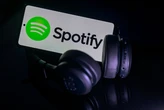A huge shift in social media is underway: People are leaving X while millions have flocked to Bluesky, a new upstart powered by a tiny 20-person team. Bluesky’s COO, Rose Wang, addresses this inflection point as dissatisfaction with major platforms continues to grow. Wang emphasizes that Bluesky isn’t merely an X clone, or a haven for liberals, but rather a key player in the decentralized social web focused on personal connections, data privacy, and democratization.
This is an abridged transcript of an interview from Rapid Response, hosted by Robert Safian, former editor-in-chief of Fast Company. From the team behind the Masters of Scale podcast, Rapid Response features candid conversations with today’s top business leaders navigating real-time challenges. Subscribe to Rapid Response wherever you get your podcasts to ensure you never miss an episode.
The surge that you’ve had most recently after the election, was it something you were prepared for? Or did it come as a surprise?
Well, I think being prepared and being surprised are actually two different things. You can be both. We were prepared in the sense that we had built our protocol for Twitter initially. So we were ready for a large number of users to come on all at once.
But then, could we have predicted the way that was going to happen and when it was going to happen? Absolutely not. Because I think we would have probably had more staff members. But we have managed quite well with the team that we have. Our priority is to keep the app online.
Was there a moment when you realized like, “Oh, something different is happening here?”
I think the thing that felt really different about this surge was that momentum continued much longer than it did in a lot of other countries, and there was no clear end date.
People are coming to Bluesky for very different reasons. People will attribute it to a certain event, but I often say people don’t leave their homes after one thing that goes wrong. It’s generally after so much disappointment that trust has been lost.
So we were already seeing that users were very unhappy with the experience they were having on other social platforms like X. I think the reason they’re coming here is actually something a lot deeper, which is that there are dark patterns happening. They’re not feeling good. They’re not making friends. They don’t feel safe. It’s these very fundamental human needs that are driving people away.
For people who may not be as familiar, can you describe what Bluesky is and what makes it different from X?
Absolutely. I do love this question, so thank you for asking, because a lot of people assume that we’re just an X alternative, but we’re very different. We are an open social media platform that puts users first and gives users choice. What does that look like? Well, an algorithm [is] controlled by a small group of people, and with Bluesky, that’s not the case.
Users have built more than 50,000 different feeds, including like 5 cat feeds, more than 200 feeds about Taylor Swift. There are wrestling feeds, F1 feeds . . . the possibilities are endless. We’re seeing that people really like the chronological feed. We’re seeing that people want a lot more control over their experience and to know who they’re talking to.
These feeds provide a cozier corner to connect with other people with either similar interests or similar dispositions because there’s just no longer a single dominant algorithm that only promotes either the most polarizing posts or the biggest brands. So you actually get to interact with real people and have fun conversations again.
I’ve noticed that recently Bluesky has become kind of a liberal refuge from the right-wing tilt of X. I know Congresswoman Alexandria Ocasio-Cortez became your first user to hit a million followers. How much do you talk about that on the team? Is that kind of focused community a feature, or is it a bug? How do you think about that?
Well, first of all, we’re not building the infrastructure for a specific political viewpoint or a specific group of people. The goal is, “Hey, here’s open infrastructure for global conversation, and here are the tools that give you the ability to create your own experience upon that infrastructure. . . . Go create your own space, go figure out what your community needs to feel safe.” And we won’t disrupt what you want unless you’re building it in our society and it goes against our terms of service and community guidelines. In which case, you can start another server and just leave our society and build your own.
We actually take a lot of inspiration from just how humans interact when they’re not online, how they interact at parties, how they interact in communities. I think there is maybe a wrong belief that communities create echo chambers.
I think that communities actually help us learn about new ideas in a safer environment. What we’ve learned is putting people in a town hall and having other people scream their extreme opposite viewpoints at them probably won’t change your mind.
But if you’re in a community with people with adjacent viewpoints and have other things in common, you’re more likely to take on that adjacent viewpoint.
So we actually think that Bluesky provides both of those experiences, where you have all these custom feeds that are smaller communities and smaller worlds where you can go and have fun and feel safe and connected.
Then, when you’re feeling more abundant and ready to go and discover new and maybe not so familiar experiences, you can go to the Discover feed, which is the global algorithm, with just one swipe, and see what’s happening across the world.
We’re saying you don’t have to choose. Depending on how you feel at that moment, you can choose whether you want a smaller community experience or a larger community experience.
Your CEO, Jay [Graber], also said this week that the company wouldn’t “enshittify” its platform with ads. So the business model will be based on subscriptions.
Our first business model is subscriptions, where we won’t put core features like speech behind a paywall. There will be more features that help with self-expression, like custom avatar frames, higher-resolution image uploads, and views.
Another business model we’re thinking about is observing what users are doing on the app where they’re finding a lot of value, and then amplifying that behavior rather than forcing a new behavior. One of the things we’re excited about is the Bluesky app is created by not just us. It’s created by lots of users—50,000 different feeds created by users. These users are paying each other on Patreon or Ko-fi, supporting their livelihoods. We want to be able to build a payments network where we can help more transactions happen in more volume, and we’ll take a percentage of that transaction.
We did not lock ourselves into an advertising business model, which is why Jay said that we can’t “enshittify” your experience with ads because you can just leave. We’ve open-sourced the Bluesky app so anyone can copy and paste the code and create Greensky overnight.
Our incentives are aligned with the user, which is why I think most people are having a better experience on Bluesky because we’re ensuring that they are, or else we know they’ll leave.
It’s got to be hard handling the current growth and the interest from people like me. At the same time, the opportunity for the future is suddenly way different. How do you balance all this? How do you prioritize?
That’s the key word, Bob, prioritize. In the midst of a million opportunities and so many people to talk to, we have to be very clear on who we’re serving and why. What’s been very clear for our team the last few weeks is that Bluesky is a home for independent creators, journalists, artists, publishers, and entrepreneurs who want to build a presence online. There have been probably dark patterns happening for the last 10 to 20 years that we haven’t understood. Most platforms are incentivized to lock people in and not link out. If you post a link, you’re probably going to get demoted in the algorithm.
Hank Green actually posted a YouTube video about this, where he did an experiment of posting on Threads, X, and Bluesky the same posts, and then some posts with certain words, some posts with links, and no links. It was kind of wild what he saw. Like on Threads, when he posted a link, he’d maybe get 60 likes. On Bluesky, he gets a thousand likes. That’s actually kind of wild how different that engagement metric is.
We do know people want to build a livelihood online. They want to build their own brand that they can control. They want to own the relationship with their community. Bluesky is trying to make that easier for everyone who’s trying to do that today.








No comments